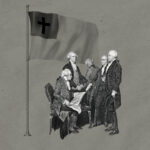What is the Enneagram?
The Enneagram of Personality, or simply the Enneagram, is a categorization tool that classifies human personality into a typology of nine interconnected personality types.
The symbol of the Enneagram is a figure composed of three parts: a circle, an inner triangle (connecting 3-6-9), and an irregular hexagonal “periodic figure” (connecting 1-4-2-8-5-7).
Although the classification system varies, the most commonly used typology is as follows:
Type 1 – The Reformer (The Rational, Idealistic Type: Principled, Purposeful, Self-Controlled, and Perfectionistic)
Type 2 – The Helper (The Caring, Interpersonal Type: Demonstrative, Generous, People-Pleasing, and Possessive)
Type 3 – The Achiever (The Success-Oriented, Pragmatic Type: Adaptive, Excelling, Driven, and Image-Conscious)
Type 4 – The Individualist (The Sensitive, Withdrawn Type: Expressive, Dramatic, Self-Absorbed, and Temperamental)
Type 5 – The Investigator (The Intense, Cerebral Type: Perceptive, Innovative, Secretive, and Isolated)
Type 6 – The Loyalist (The Committed, Security-Oriented Type: Engaging, Responsible, Anxious, and Suspicious)
Type 7 – The Enthusiast (The Busy, Fun-Loving Type: Spontaneous, Versatile, Distractible, and Scattered)
Type 8 – The Challenger (The Powerful, Dominating Type: Self-Confident, Decisive, Willful, and Confrontational)
Type 9 – The Peacemaker (The Easygoing, Self-Effacing Type: Receptive, Reassuring, Agreeable, and Complacent)
In addition to the primary type, an individual may have strong characteristics of one of the adjacent types. This is referred to as the “wing.” A person may be described, for example, as a Type 2 with a wing of 3, abbreviated as “2w3.”
Where did the Enneagram come from?
Some proponents of the Enneagram attribute it to the Desert Fathers, Kabbalists, Sufi mystics, Pythagoreans, the Chaldeans, or other ancient groups. Claims for an ancient origin, however, have never been substantiated.
The earliest mention of the Enneagram is found in the writings of the Russian occultist P. D. Ouspensky, who attributes it to his teacher, the Greek American occultist Georges I. Gurdjieff. Gurdjieff considered the Enneagram a symbol of the cosmos, but made no connection with it to personality types.
It was left to another occultist, Óscar Ichazo, to connect the Enneagram to personality. Ichazo claimed to have discovered the personality type meaning of the Enneagram when it was taught to him by the Archangel Metraton while he was high on mescaline.
One of Ichazo’s students, a Chilean-born psychiatrist named Claudio Naranjo (another occultist) was the first to connect the nine points of the Enneagram to nine basic personality types. (Naranjo also appears to be the one to connect the mention of the Enneagram by Gurdjieff and Ouspensky to ancient sources.)
In the 1970s, students of Naranjo spread the Enneagram to various Catholic communities, especially in mystical and contemplative circles. Some of the promoters of the Enneagram include the former Jesuit Don Riso, the Franciscan friar Richard Rohr, and late Benedictine nun Suzanne Zuercher.
In 1997, Riso co-founded the Enneagram Institute, an organization that helped bring the Enneagram to a broader audience.
Why are some evangelicals enthusiastic about the Enneagram?
Although Catholics have been debating concerns about the Enneagram for decades (the United States Conference of Catholic Bishops Committee on Doctrine issued a statement in 2000), it has only become popular in evangelicals in the past few years.
While it’s impossible to say why it has became such a hot fad, there are few factors that that may have lead to its use:
A need for a simple classification tool — In the 1970s, some people would say, “I’m a Libra,” referring to their astrological sign. In the 1990s, those same people were likely to say, “I’m INFJ,” referring to their Myers Briggs personality type. In each case, individuals wanted a simple way to both convey information about their personality to others and also to identify personality traits of other people.
Like Myers-Briggs and astrological signs, the Enneagram allows people to convey a significant amount of information about their personality in a compact way for people who speak the same cultural code.
A need for a Myers-Briggs replacement — The popularity of the Enneagram among evangelicals appears to coincide with the downfall of Myers-Briggs (M-B). Although still commonly used in corporate settings, the general public has become more aware that M-B is generally considered pseudoscience because of the lack of evidence the test or its classifications have any scientific validity.
Critics of M-B frequently point out that it’s too simplistic to measure personality and fails the standard of reliability (e.g., when retested on a later date, up to 50 percent of the test-takers will be classified into a different personality type). As one critic notes, the M-B “has about as much insight and validity as a Buzzfeed quiz.”
The Enneagram seems to have stepped up to fill the role once reserved for M-B.
A need for “personality awareness” — Because of changes in society, there is an increased need for the ability to recognize, understand, and interact with a wide range of personality types. As conflict resolution specialist Bill Eddy notes,
We don’t have personal histories with each other: Today, people have an incredible amount of mobility, so much that we have become a society of individuals. Yet we need to be around others, so we are constantly inviting new people into our lives: in dating, at school, at work, hiring repair people, joining churches, volunteer groups, investing, sports, you name it. But most of the people you meet don’t have a history that you know about. You don’t know their reputation, their prior relationships, or anything beyond what they tell you about themselves. Without a history, it’s not obvious on the surface who you can really trust and who you can’t. You can check someone out online, but you can’t always determine what information is accurate and what is false.
Some evangelicals find the Enneagram to be a useful tool for gaining “personality awareness” and for learning about people they don’t have a personal history with, such as members of a new church plant.
Why are some evangelicals opposed to the Enneagram?
Evangelicals who favor the Enneagram tend to be younger and either do not know or downplay its history. They consider it just another personality typology, like Meyers-Briggs. In contrast, evangelicals who oppose the Enneagram tend to be older, and associate the Enneagram with the occult or with the Catholic spirituality movement.
Those who oppose it are likely to have first seen books on the Enneagram in the New Age section of the bookstore (now they are more likely to be in the Self-Help/Psychology section). The symbol also is reminiscent of the pentagram, which is associated with various occult groups, from Wiccans to Satanists.
Is the Enneagram an accurate or useful test of personality?
Determining the plausibility of the Enneagram is difficult, since there is no standard test or method for determining the personality types.
The oldest forms of Enneagram typing are based on self-assessment, where a person chooses the number that best fits his or her personality type. While this is sometimes aided by a brief questionnaire, the classification relies primarily on self-knowledge. As Don Riso says in his influential book, Understanding the Enneagram, there are several “rules of thumb” that can help determine if we’ve “correctly chosen our correct type.”
“If the type you have chosen not only stirs up deep feelings but also helps you understand aspects of yourself you have never seen before, then it is probably your type,” Riso says. “If you choice leads you to make new connections and see new patterns in yourself and your relationships, then you have probably accurately typed yourself.”
In other words, most Enneagram tests rely on the Barnum effect, a psychological phenomenon that occurs when individuals believe that personality descriptions apply specifically to them (more so than to other people), despite the fact that the description is actually filled with information that applies to almost everyone.
More recently, a variety of more advanced Enneagram tests have been developed to provide a veneer of scientific legitimacy. Their usefulness is questionable, though, since, like the Myers-Briggs test, the personality number assigned by any particular test frequently differs from other tests or changes upon retesting.
Even the most reliable Enneagram tests are likely to be accurate by accident. Because the most sophisticated Enneagram tests use adjective-based lexical questionnaires, they are likely to simply be identifying an Enneagram number with the Big Five personality traits.
An influential, though still largely untested, idea within personality theory is the lexical hypothesis. This is the idea that (a) individual differences that are most salient and socially relevant in people’s lives will eventually become encoded into their language, and (b) the more important such a difference, the more likely is it to become expressed as a single word. In other words, personality types are likely to use relevant adjectives (like “quiet” or “friendly”). Once you identify who is most likely to use such adjectives, you can figure out their personality type.
Based on this hypothesis, psychologists create personality tests that include adjectives such as “quiet” or “friendly” and ask individuals to rate themselves on a scale from one to five. Based on statistical analysis, research has found that people who identify with certain adjective more than others can then be ranked on the five factor model or “Big Five” personality traits: openness to experience, conscientiousness, extraversion, agreeableness, and neuroticism. (The controversial psychoanalyst and professor Jordan Peterson has a helpful video explaining how all this works.)
Should Christians be using the Enneagram?
While the Enneagram is itself not ancient, typological personality classifications have been around since the era when Nehemiah was rebuilding the walls of Jerusalem.
During that period the Greek physician Hippocrates was advacing his proto-psychological theory about the “four temperaments.” The “father of medicine” identified four fundamental personality types—sanguine, choleric, melancholic, and phlegmatic—that he believed were influenced by the four humors—blood, phlegm, yellow bile, and black bile.
While doctors no longer attribute our temperament to our bodily fluids, the idea that our personalities can be mapped to basic categories has lived on. (In the late 1960s, Tim LaHaye, the best selling co-author of the Left Behind novels, sold a million copies of a book that claims our temperaments were still best classified as sanguine, choleric, melancholic, and phlegmatic.) Throughout the ages, Christians have latched on to such typologies, so it’s not surprising evangelicals would be attracted to the latest variation.
Still, it raises the questions of whether we should be concerned because of the Enneagram’s occultist origins.
We definitely should be concerned when the Enneagram is being used, as many Catholics have, as a form of Gnostic-based numerology. We shouldn’t be seeking divination from a tool that was developed by someone who claims it was handed to him in a vision from what sounds suspiciously like a demon.
When the Enneagram is used simply as a diagnostic tool or for personality classification, the question become less clear. Despite its origin story, there may be enough of the Enneagram that remains useful (or at least non-harmful). If that’s the case, we should leave the issue up to the conscience of the individual Christian.
However, we should be proceeding with caution and treat the issue like Paul treated meat sacrificed to idols (Rom. 14:14-23) if using the Enneagram causes our “weaker brothers” to stumble. If they begin to think New Age-oriented tools of “self-discovery” are also legitimate, we should be willing to abandon the enneagram altogether.
“If the Enneagram were another version of What Color Is Your Parachute? or Strengths Finder, that would be fine,” Kevin DeYoung says. “But it has been, from its inception (whenever that was), infused with spiritual significance. And therein lies the danger.”
Evangelicals concerned about the Enneagram should probably worry less, since it’s likely a mostly harmless fad that will fade away in a few years. And evangelicals enthralled with the Enneagram should probably wonder why they’re spending so much energy on a tool that has about as much scientific validity as the four humors theory of Hippocrates (and Tim LaHaye).
Download your free Christmas playlist by TGC editor Brett McCracken!
 It’s that time of year, when the world falls in love—with Christmas music! If you’re ready to immerse yourself in the sounds of the season, we’ve got a brand-new playlist for you. The Gospel Coalition’s free 2025 Christmas playlist is full of joyful, festive, and nostalgic songs to help you celebrate the sweetness of this sacred season.
It’s that time of year, when the world falls in love—with Christmas music! If you’re ready to immerse yourself in the sounds of the season, we’ve got a brand-new playlist for you. The Gospel Coalition’s free 2025 Christmas playlist is full of joyful, festive, and nostalgic songs to help you celebrate the sweetness of this sacred season.
The 75 songs on this playlist are all recordings from at least 20 years ago—most of them from further back in the 1950s and 1960s. Each song has been thoughtfully selected by TGC Arts & Culture Editor Brett McCracken to cultivate a fun but meaningful mix of vintage Christmas vibes.
To start listening to this free resource, simply click below to receive your link to the private playlist on Spotify or Apple Music.


































